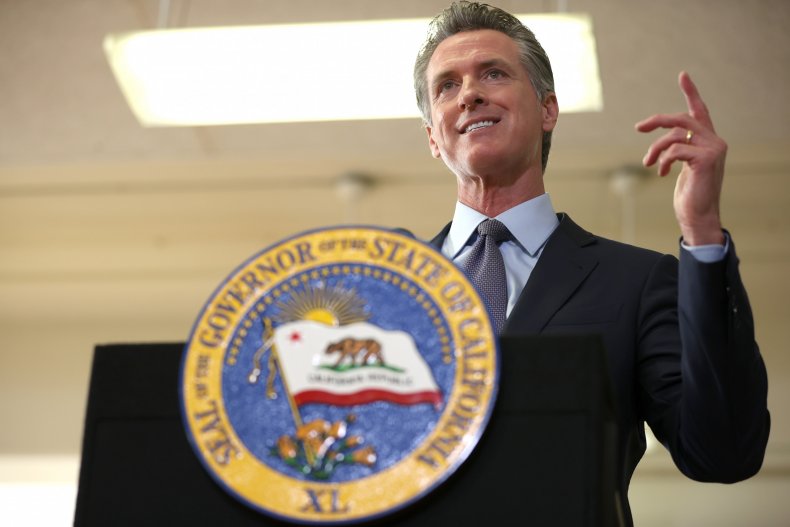Britain’s Alok Sharma told reporters that COP26 officials would soon publish the first draft of the so-called cover decision, which summarises the commitments of more than 190 countries, in a bid to focus minds in the three days remaining.
Climate activists and experts will pore over the document looking for items such as timelines to phase out public subsidies of fossil fuels, or provide long-promised funds to help poor countries tackle climate change.
These and a raft of other complex issues to be hammered out will determine whether the two-week Glasgow summit can succeed in keeping within reach the 1.5C ceiling considered vital to avoid catastrophic climate consequences.
“We are making progress at COP26 but we still have a mountain to climb over the next few days,” said Sharma.
The European Union’s climate policy chief, Frans Timmermans, delivered a similarly blunt message, telling reporters, “the honest truth is we’re not where we want to be, not even close.”
The Climate Action Tracker (CAT) research group put a sobering number on the size of the task at hand, saying that all the national pledges submitted so far to cut greenhouse gases by 2030 would allow the Earth’s temperature to rise 2.4C from pre-industrial levels by 2100.
Scientists say 1.5C – the aspirational goal set down in the 2015 Paris Agreement – is the most the Earth can afford to avoid an acceleration of the intense heat waves, droughts, storms, floods and crop failures it is already experiencing.
RISING SEAS
Underscoring the stakes for vulnerable nations, the tiny Pacific island of Tuvalu said it was looking at legal ways to keep ownership of its maritime zones and recognition as a state even if it is engulfed by rising seas.
“We’re actually imagining a worst-case scenario where we are forced to relocate or our lands are submerged,” its foreign minister, Simon Kofe, told Reuters.
British Prime Minister Boris Johnson, who opened the COP26 eight days ago and attended the first two days, will return to the conference on Wednesday, his spokesperson said.
To meet the 1.5C goal, the United Nations wants to achieve “net zero” – where no more greenhouse gases are emitted than can simultaneously be absorbed – by 2050.
And it says that will be impossible unless emissions – mostly of carbon dioxide from burning coal, oil and gas – are cut 45% from 2010 levels by 2030.
“Even with all new Glasgow pledges for 2030, we will emit roughly twice as much in 2030 as required for 1.5°C,” CAT said.
China, the world’s largest emitter, says it will achieve net zero only in 2060, the same year as major oil and gas producer Russia. India, another large-scale polluter, has a target date ten years later.
Moreover, CAT explicitly warned against assuming that longer-term “net zero” pledges would even be met, since most countries have not yet implemented the short-term policies or legislation needed.
“It’s all very well for leaders to claim they have a net zero target, but if they have no plans as to how to get there, and their 2030 targets are as low as so many of them are, then frankly, these ‘net zero’ targets are just lip service to real climate action,” said Bill Hare, CEO of Climate Analytics, one of the organisations behind the CAT.
Sharma acknowledged as much, saying: “The world needs confidence that we will shift immediately into implementation, that the pledges made here will be delivered, and that the policies and investment will swiftly follow.”
WEAK DEAL OR NO DEAL?
A key pillar of climate action is carbon pricing and trading – mechanisms that force polluters to pay a market price for their emissions, or pay others to offset them, by planting trees that bind carbon or investing in cleaner power.
COP26 is supposed to create a global framework for carbon pricing, but the problem has defeated the last two climate summits, and is in danger of proving insurmountable in Glasgow too.
“There’s a higher chance of getting a deal this time, but it could be very weak,” said Gilles Dufrasne, a policy officer with Carbon Market Watch. “Having no deal might hence be an acceptable outcome.”
Many campaigners including Greenpeace oppose the use of carbon offsets under any circumstances, saying they lessen the incentives for polluters to change their habits, and risk paying for changes elsewhere that would have happened anyway.
“Net zero does not mean zero,” warned Teresa Anderson, climate policy coordinator for ActionAid International. “In the majority of cases, these corporations … are planning to carry on business as usual ” for long periods, she added.
https://www.reuters.com/business/cop/more-net-than-zero-do-carbon-cutting-promises-add-up-climate-2021-11-09
But some say things could be worse, noting how U.S. President Joe Biden had promptly returned the world’s second-biggest greenhouse gas emitter to the Paris Agreement, from which his predecessor Donald Trump had withdrawn, and pushed a $555 billion climate package through Congress.
Democratic U.S. Representative Alexandria Ocasio-Cortez underlined the more constructive U.S. approach at the Glasgow conference on Tuesday.
“We’re just here to say that we’re not just back. We’re different and we’re more just. And we are more open-minded to questioning prior assumptions of what is politically possible,” she said.
(Reporting by Kate Abnett and William James in GlasgowAdditional reporting by Shadia Nasralla and Stefica Nicol BikesWriting by Kevin Liffey, Gavin Jones and Richard ValdmanisEditing by Philippa Fletcher, Alexander Smith and Matthew Lewis)
New report warns COP26 negotiators that new pledges are inadequate
Andrew Freedman
AXIOS

Climate change activists dressed as world leaders, pose for a photograph during a demonstration in the Forth and Clyde Canal in Glasgow on November 9, 2021, during the COP26 UN Climate Change Conference. (Andy Buchanan/AFP via Getty Images)
GLASGOW, Scotland -- A new analysis released during the COP26 climate summit finds that despite additional countries' pledges to cut greenhouse gas emissions by 2030 and reach net zero by 2050, nations are still on a course to be emitting twice the amount of greenhouse gas emissions in 2030 than would be consistent with the Paris Agreement's more ambitious temperature target.
Why it matters: As negotiators work this week to hammer out the text of a climate agreement, they are now more aware of the large gap that exists between commitments to date and what is needed to avert far worse climate change impacts.
Driving the news: The new analysis comes from the Climate Action Tracker, a nonprofit group that keeps tabs on nations' pledges to cut emissions and calculates the climate change that would result if those voluntary commitments are met.
The group found that the world is now on a path to warm by 2.4°C (4.32°F), when looking only at 2030 targets. However, based on a continuation of current policies (i.e. what's happening in the real world), the group found the globe will likely warm by about 2.7°C (4.86°F) compared to preindustrial levels by 2100.
Such warming would be inconsistent with the Paris Agreement's target of keeping warming to "well below" 2°C, with the stretch goal of limiting it to 1.5°C.
The negotiations in Glasgow are aimed in large part at keeping the 1.5-degree goal viable, with officials speaking of keeping "1.5 alive."
"Even with all new Glasgow pledges for 2030, we will emit roughly twice as much in 2030 as required for 1.5 [degrees]," the Tracker's analysis states.
The intrigue: The new numbers are already being discussed in Glasgow, adding additional urgency to the work of negotiators from nearly 200 countries.
"There have been obviously a number of reports that have come out over the past few days and I suspect there will be further reports that come out," COP President Alok Sharma said at a press conference Tuesday. "What I think they will be demonstrating is that there's been some progress but clearly not enough."
The bottom line: The net zero targets, which more than 140 countries have announced, are subjected to particular scrutiny in the Tracker's analysis, since most countries have not offered plans to get from where they are today to net zero.
“It’s all very well for leaders to claim they have a net zero target, but if they have no plans as to how to get there, and their 2030 targets are as low as so many of them are, then frankly, these net zero targets are just lip service to real climate action, said Bill Hare, CEO of Climate Analytics, a Climate Action Tracker partner organization, in a statement.
"Glasgow has a serious credibility gap."

















